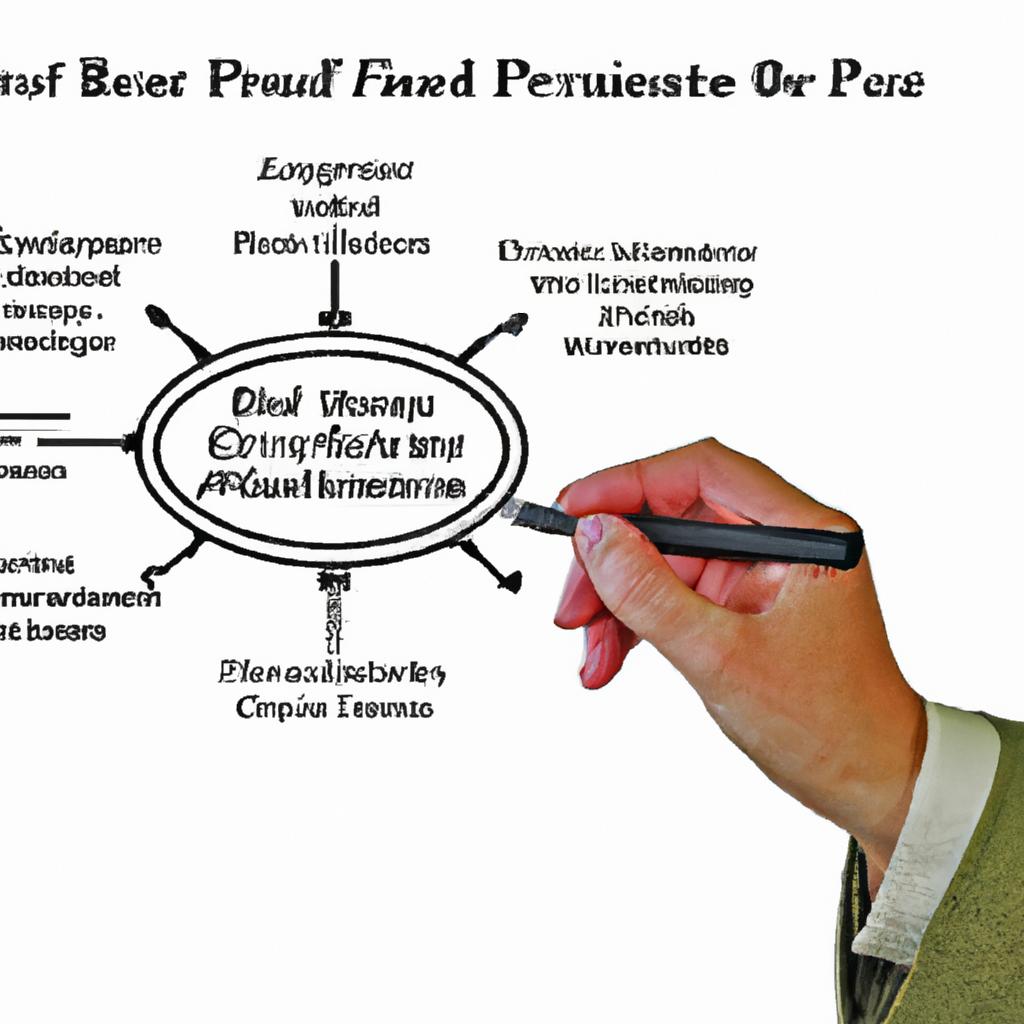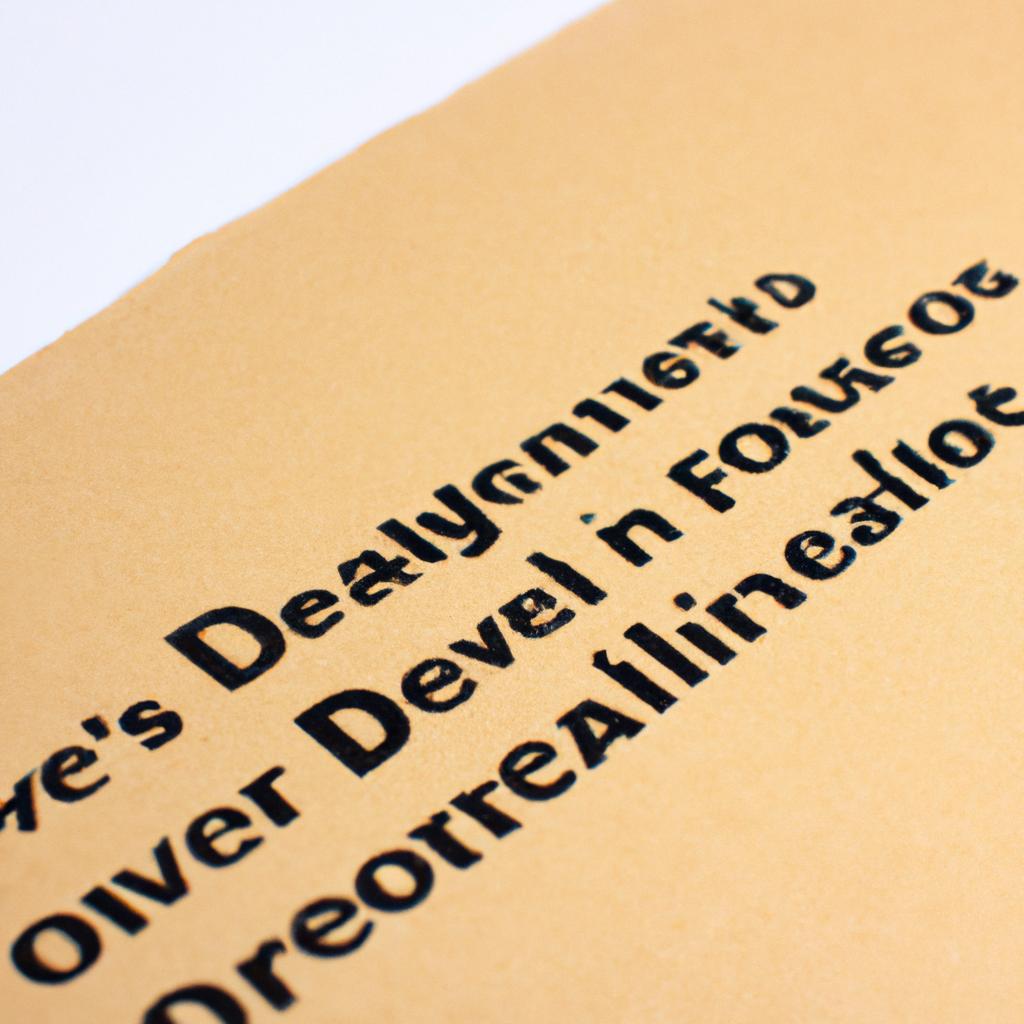As seasoned legal professionals at Morgan Legal Group in New York City, we understand the complexities of navigating the probate process. One area of particular interest and opportunity for savvy investors is the purchase of probate properties. In this article, we will explore the intricacies of buying probate properties, highlighting the unique benefits and potential pitfalls that come with investing in these unique real estate opportunities. Whether you are a seasoned investor or a first-time buyer, our expertise in estate planning, probate, and trusts can help guide you through the process of acquiring probate properties with confidence and clarity.
Understanding the Probate Process
When it comes to buying probate properties, it’s important to understand the probate process and how it may affect your purchase. Probate properties are often sold at a discount, but there can be challenges and risks involved. Here are some key things to consider:
<ul>
<li><strong>Evaluate the Property:</strong> Before making an offer on a probate property, it's crucial to thoroughly inspect the property and assess any repairs or renovations that may be needed.</li>
<li><strong>Understand the Legal Process:</strong> The probate process can be complex and lengthy, so it's essential to have a clear understanding of how it works and what to expect.</li>
<li><strong>Work with an Experienced Attorney:</strong> Consulting with a knowledgeable probate attorney can help guide you through the process and ensure that your purchase is legally sound.</li>
</ul>
Additionally, it’s important to be prepared for potential delays or complications that may arise during the probate process. Working with a team of professionals, including real estate agents, appraisers, and inspectors, can help streamline the process and ensure a successful purchase. By carefully navigating the probate process and understanding the legalities involved, you can have a successful experience buying probate properties.
<p>If you need assistance with the probate process or have any questions about buying probate properties, contact Morgan Legal Group in New York City. Our experienced team of attorneys can provide expert guidance and support to help you navigate the complexities of probate properties.</p>

Benefits of Buying Probate Properties
When it comes to purchasing probate properties, there are a plethora of benefits that buyers can reap. These properties are often sold below market value, allowing for a great opportunity for buyers to acquire real estate at a discounted price. Additionally, probate properties are typically in need of some level of renovation, which presents a chance for buyers to customize the property to their liking.
Another advantage of buying probate properties is the potential for a quicker closing process. Since these properties are typically sold through the probate court system, the sale can be expedited, resulting in a faster turnaround time for buyers. Furthermore, purchasing a probate property can be a less competitive process compared to traditional real estate transactions, providing buyers with a unique opportunity to secure a property with less competition.

Challenges to Consider When Purchasing Probate Real Estate
When purchasing probate real estate, there are several challenges that need to be carefully considered. One major challenge is the potential for delays in the probate process, which can significantly prolong the time it takes to close on a property. This delay can be due to various factors such as disputes among heirs, creditor claims, or other legal issues that may arise during the probate process.
Another challenge to consider when purchasing probate real estate is the potential for hidden liabilities. Since assets in probate are often not thoroughly vetted, there is a risk that the property may have existing liens, debts, or other financial obligations that could transfer to the buyer upon purchase. It is crucial to conduct thorough due diligence and work closely with a qualified real estate attorney to ensure that you are fully aware of any potential liabilities associated with the property before finalizing the purchase.
Expert Tips for Successfully Acquiring Probate Properties
When it comes to acquiring probate properties, there are several expert tips that can help ensure a successful transaction. First and foremost, it is important to conduct thorough research on the property in question. This includes gathering information on the property’s value, any outstanding debts or liens, and the condition of the property itself. By having a clear understanding of the property’s background, you can make an informed decision on whether or not to proceed with the purchase.
- Research the property’s value
- Check for outstanding debts or liens
- Assess the condition of the property
Another key tip for acquiring probate properties is to work with a reputable probate real estate agent or attorney. These professionals have a wealth of experience in dealing with probate properties and can provide valuable guidance throughout the process. They can help navigate the complexities of probate law, negotiate with other parties involved, and ensure that all legal requirements are met. By enlisting the help of experts in the field, you can increase your chances of a successful acquisition of a probate property.
- Work with a reputable probate real estate agent or attorney
- Get guidance on navigating probate law
- Ensure all legal requirements are met
Q&A
Q: What are probate properties?
A: Probate properties are real estate assets owned by the deceased that are transferred to their heirs or beneficiaries through court-supervised probate process.
Q: What are the benefits of buying probate properties?
A: Buying probate properties can often result in a great deal for investors, as these properties are typically priced below market value and sellers are motivated to sell quickly.
Q: How does the probate property buying process work?
A: The probate process can be complex and varies by state, but generally involves a court-supervised sale of the property to settle the deceased’s estate. Investors can make offers on these properties, and if accepted, purchase them through the probate court.
Q: What are some challenges associated with buying probate properties?
A: Some challenges of buying probate properties include potential delays in the probate process, competing with other bidders, and the possibility of inheriting liens or debts associated with the property.
Q: Are there any tips for successfully buying probate properties?
A: It’s important to work with a knowledgeable real estate agent or attorney who is experienced in dealing with probate properties. Additionally, conducting thorough research on the property and being prepared to act quickly can help investors successfully purchase probate properties.
In Conclusion
As you navigate the intricate world of probate properties, remember to approach each opportunity with patience and diligence. By understanding the process and seeking out trusted professionals for guidance, you can unlock the potential of these unique real estate opportunities. Whether you are a seasoned investor or a first-time buyer, buying probate properties can be a rewarding endeavor that offers both financial and personal fulfillment. So, go forth with confidence and seize the chance to turn these estate properties into your own piece of real estate gold. Happy house hunting!
 When it comes to real estate, there are a variety of options for buying properties. One avenue that has gained popularity in recent years is purchasing probate properties. These are properties that have been left behind by someone who has passed away and are now in the process of being distributed to their heirs or beneficiaries. In this article, we will dive into the details of buying probate properties and what you need to know before making a purchase.
When it comes to real estate, there are a variety of options for buying properties. One avenue that has gained popularity in recent years is purchasing probate properties. These are properties that have been left behind by someone who has passed away and are now in the process of being distributed to their heirs or beneficiaries. In this article, we will dive into the details of buying probate properties and what you need to know before making a purchase.
What are Probate Properties?
Probate properties are homes, land, or any other type of real estate that is part of a deceased person’s estate. When someone passes away, their assets are usually distributed through a process called probate. This is the legal process of proving the validity of a deceased person’s will and distributing their assets to their heirs or beneficiaries. During probate, the property is typically put up for sale in order to help settle any debts or taxes owed by the deceased.
Why Buy Probate Properties?
There are several reasons why buying probate properties can be a smart investment.
1. Potential for Below Market Value Deals
Probate properties are often sold at a significant discount compared to their market value. This is because the sellers, who are usually the heirs or beneficiaries, are motivated to sell the property quickly to liquidate assets and distribute the proceeds. As a buyer, this presents an opportunity to potentially purchase a property at a below market value price.
2. Lesser Competition
Since probate properties are not widely marketed like traditional properties, there is usually less competition when it comes to buying them. This means that you have a better chance of negotiating a good deal.
3. Potential for Upgrades
Properties that go through the probate process are sometimes in need of renovations or upgrades. This can be a great opportunity for buyers who are willing to put in the work and invest in improving the property. With some renovations, you can increase the value of the property and potentially make a profit upon resale.
How to Buy Probate Properties
1. Understand the Probate Process
It’s important to have a basic understanding of the probate process in order to successfully purchase a probate property. The process can vary slightly depending on the state, but generally, it involves proving the will’s validity, paying any outstanding debts or taxes, and distributing the remaining assets to the beneficiaries.
2. Find a Probate Property
In order to find probate properties, you will need to do some research. Most probate properties are listed with a real estate agent or attorney, so contacting local real estate agents or attorneys is a good place to start. You can also check public records at your county’s probate court to see if any properties are in the probate process.
3. Have Your Financing in Order
It’s important to have your financing in order before making an offer on a probate property. Since these properties are often sold quickly and with little negotiation, having pre-approval for a mortgage or having cash on hand can put you in a stronger position to make an offer.
4. Be Prepared for a Longer Process
Buying a probate property can often take longer than a traditional real estate transaction. This is because the process involves multiple parties, including attorneys, heirs, and the probate court itself. Be patient and be prepared for delays along the way.
Tips for Buying Probate Properties
1. Do Your Due Diligence
It’s important to thoroughly research the property you are interested in before making an offer. This includes getting a home inspection and title search to avoid any surprises down the line.
2. Negotiate with the Sellers
As mentioned earlier, probate properties are often sold at a discount, but it’s still important to negotiate. Do your research to determine the fair market value of the property and make an offer based on that. The sellers may be motivated to sell quickly, but they still want to get a fair price for the property.
3. Be Respectful to the Heirs or Beneficiaries
Remember that the property was recently owned by someone who has passed away, and the heirs or beneficiaries are still grieving. Be respectful and courteous when dealing with them during the buying process.
Case Study: An Investor’s Success Story
One example of a successful probate property investment is a Los Angeles investor who purchased a home in probate for $350,000. After making some renovations, the investor sold the property for $500,000, resulting in a $150,000 profit. With the potential for such a significant return on investment, it’s no surprise that probate properties have become a popular choice for investors.
In Conclusion
Buying probate properties can be a lucrative investment opportunity for those who are willing to put in the time and effort. With the potential for below market value deals and the opportunity to increase the property’s value through renovations, it’s no wonder that probate properties have gained popularity. Just be sure to do your due diligence, have your financing in order, and be patient with the sometimes lengthy process. With these tips in mind, you could find yourself with a great investment property in hand.

